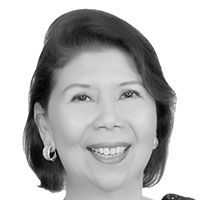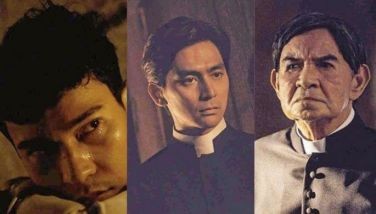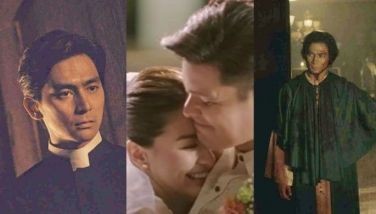Civilian supremacy

P-Noy’s firm and decisive reaction to Rear Admiral Feliciano Angue’s public outcry on his re-assignment from a three-star to a two-star post is so impressive and reassuring. It boosts the peoples’ confidence that we have a President who knows how to handle his power as “Commander-in-Chief of all the Armed Forces of the Philippines” (Section 18, Article VII of the Constitution). Indeed the President has convincingly shown that he has the peoples’ mandate to ensure that “Civilian authority is, at all times, supreme over the military” expressly stipulated in Article II Section 3 of the Charter.
This principle of supremacy of the civilian authority over the military is inherent in every democratic and republican State like ours where “sovereignty resides in the people and all government authority emanates from them (Article II Section 1). It is an important safeguard against any military takeover and the rise of military dictatorship. So it has to be preserved and upheld at all times. And what better way to do it than for the Commander-in-Chief to tell subordinates in the Armed Forces to shut up and just follow orders whenever any of them displays some semblance of insubordination like what Angue has done.
P-Noy’s unwavering stand on this issue is also a strong reminder to the army, navy, air force, and the marines, about their proper role in this country and their proper place in our kind of government; that they are the “protector of the people” charged with securing “the sovereignty of the State and the integrity of the national territory” (Article II Section 3), which is exactly the opposite of their dreaded image during the early years of Martial Law as the perpetrator or abettor of numerous human rights violations just to prop up and keep a dictator in power.
This kind of unhesitating position towards such a potentially explosive issue also serves as a forceful message to adventurous military men who may have some messianic complex of redeeming our country from the clutches of bad governance and too much politics, to just stay put in the barracks and let the Filipinos make the necessary and proper moves through the polls like what they did last elections. It is thus a powerful deterrent to another series of coup attempts and somehow creates an atmosphere of stability which is good for our local business and attractive to foreign investors.
Angue is really wrong in questioning or “debating” with the Commander-in-Chief regarding his apparent demotion. Nevertheless, the civilian authority headed by P-Noy and other members of the military should not completely ignore some of the points he raised. Indeed Angue’s mistake consists mainly in the means he used. But the truth of what he is telling us should also be looked into especially with regards to some military people engaging in politics and backing certain candidates in the last election.
In Section 5, Article XVI of our Charter, all members of the armed forces are required to take an oath or affirmation to uphold and defend the Constitution. And this Constitution, in the same section and article, insures professionalism in the armed forces and insulates it from politics (Section 5[3]) Specifically, it provides: that “adequate remuneration and benefits to its members shall be the concern of the State; and that “no member of the military shall engage directly or indirectly in partisan political activity except to vote”.
Apparently Angue is referring to this Constitutional provision although his means of calling attention to its violation did not justify his end. He should have brought out this matter when he first learned about it and not after he received an order which he considered as a demotion.
Even then the P-Noy government should still look into what Angue pointed out. It can just consider Angue’s outburst as his way of trying to be true to his oath to uphold and defend the Constitution. This is the ideal attitude to adopt on this matter if it wants to comply with this constitutional provision. After all, insuring the professionalism of the armed forces and insulating it from politics is the concern of the State. And the “State” here refers to the P-Noy government.
Indeed as shown in the past, the principle of supremacy of civilian authority over the military is good and effective only as long as the civilian authority has the support of the people. And the people will support the civilian authority only if they see and are convinced that it is defending and upholding the Constitution. EDSA I and II have proven that if the people see that the civilian authority itself culpably violates or fails to uphold the Constitution, this principle of supremacy of civilian authority over the military is the biggest casualty because the people backs the military or the military backs the people in toppling the civilian government. I am sure the P-Noy government has learned these past lessons well enough as to be careful in complying or ensuring compliance with our Constitution.
* * *
E-mail us at: [email protected]
- Latest
- Trending


























